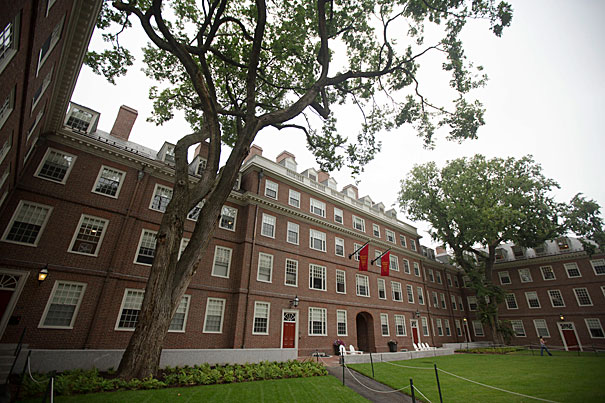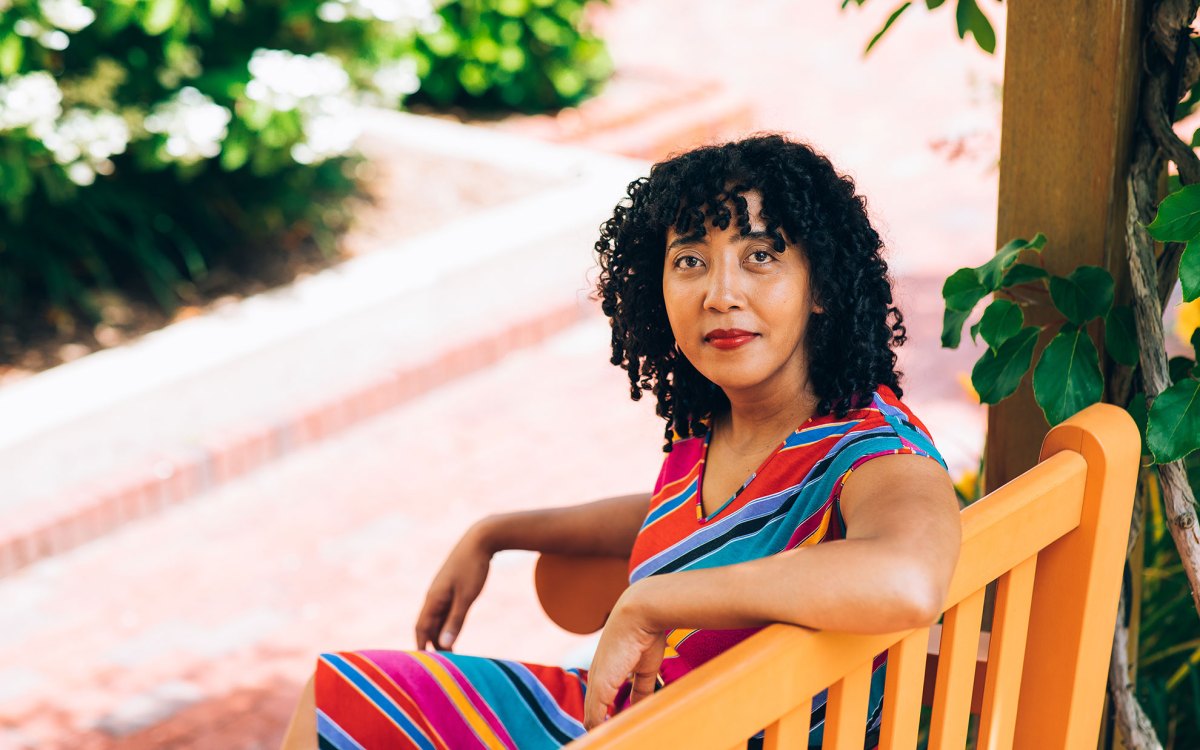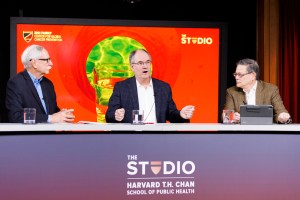Campus & Community
-

Tracing Harvard’s ties to slavery: Recovering names and histories
Researchers delve into probate records, tax lists, and estate inventories to identify enslaved people
-

Ballot order set for Overseer and HAA director elections
Candidates finalized ahead of spring voting period
-

Kicking back with Rose Byrne
Australian actress feted, roasted as Hasty Pudding Woman of the Year
-

What’s the greatest love song of all time?
Faculty and administrators tell you theirs
-

Of different faiths, but connected by belief
Community members gather to explore identity, spiritual experience at first ‘Across This Table’ interfaith dinner
-

Batman returns — to accept his Pudding Pot
Michael Keaton feted as Hasty Pudding’s Man of the Year, 30 years after first invite
-
Common Threads: In-between days
What to wear when it’s not quite sweater weather, not quite right for short sleeves? In those in-between days when the season is sorting itself out, dressing at Harvard can be a head-scratching task — especially for those incoming students hailing from balmier climates.

-
Harvard’s Wesley Saunders earns honors
Junior Wesley Saunders has been named to the 2013 Lou Henson Preseason All-America Team, as announced Wednesday by the award committee.
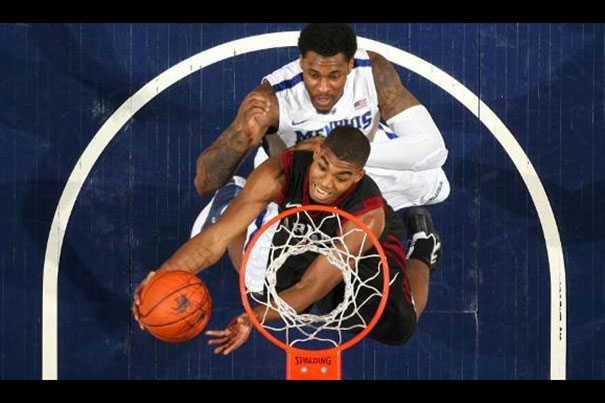
-
Let the challenges begin
President Drew Faust and Provost Alan M. Garber today announced the third President’s Challenge for entrepreneurship, renewing an invitation to all Harvard students and postdoctoral fellows to develop innovative solutions to the world’s most pressing social problems.
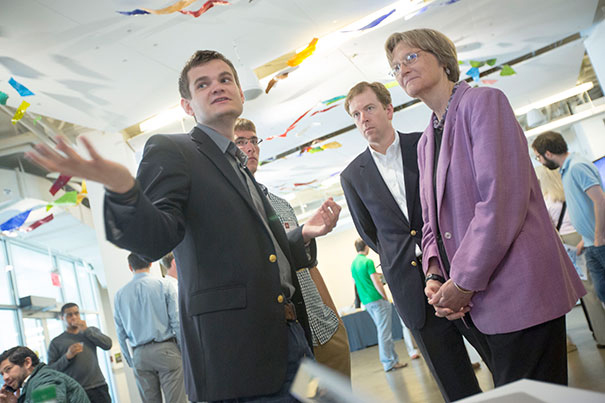
-
It’s hip in the square
Kristen Uekermann, an assistant director for faculty and academic affairs in the Department of Stem Cell and Regenerative Biology, blogs about fashion in Boston in her spare time.
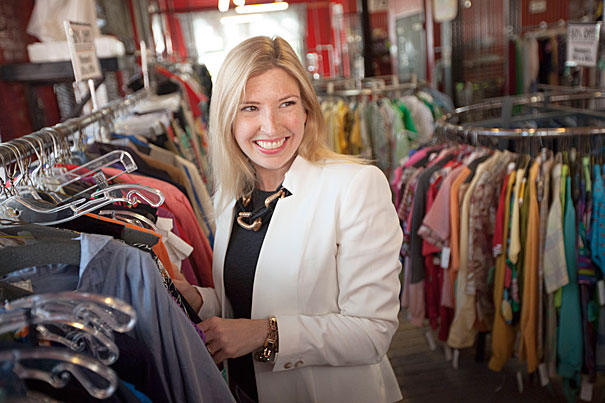
-
Cabot Library, re-imagined
The Science Center atrium and Cabot Science Library, already filled with bustling undergraduates, will undergo a transformation to support learning and teaching for the digital age while more effectively connecting the library to the atrium and plaza social spaces.
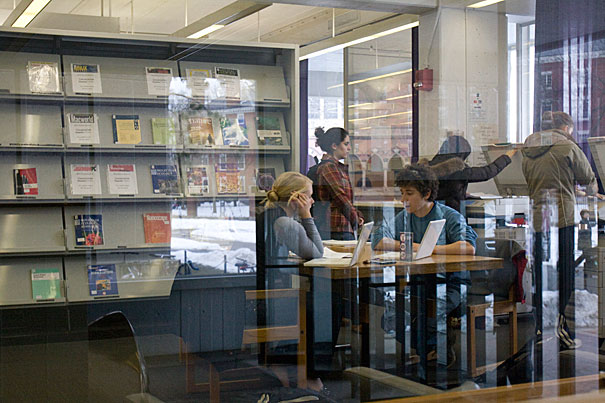
-
Harvard professor wins Nobel in chemistry
Martin Karplus, the Theodore William Richards Professor of Chemistry Emeritus in Harvard’s Department of Chemistry and Chemical Biology, is one of three to share in the Nobel Prize in chemistry, the The Royal Swedish Academy of Sciences announced this morning.
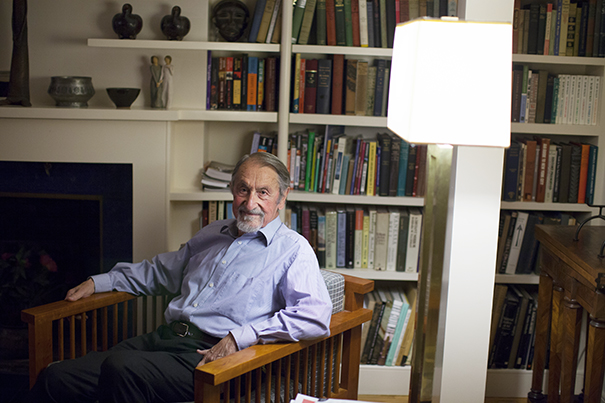
-
Nobel in chemistry awarded to Martin Karplus
Martin Karplus, the Theodore William Richards Professor of Chemistry Emeritus in Harvard’s Department of Chemistry and Chemical Biology is one of three to share in the Nobel Prize in chemistry, the The Royal Swedish Academy of Sciences announced this morning.
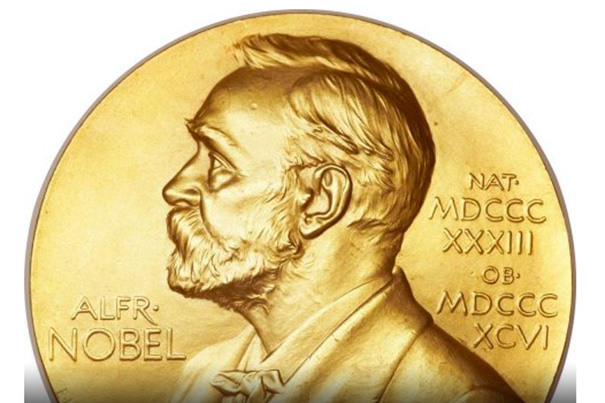
-
A welcome mat for veterans
In what has become a Harvard tradition, President Drew Faust and guest Gen. Stanley McChrystal led a list of those welcoming new Harvard students who have military backgrounds.
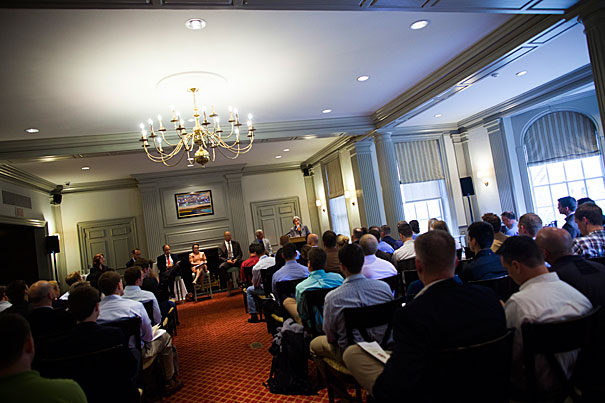
-
Public Service Fellows gather
President Drew Faust welcomed the Presidential Public Service Fellows back to campus Oct. 2 with lunch at the Harvard Faculty Club.
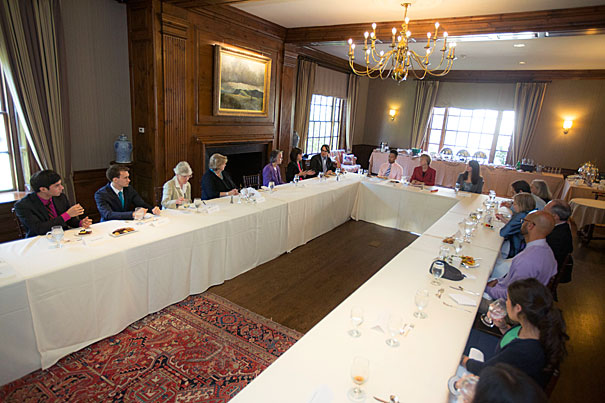
-
Barron task force launches consultation forums
The task force established to examine electronic communications will hold open and online forums through October.
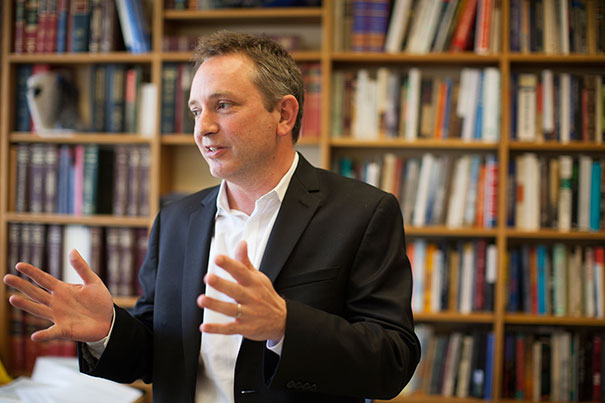
-
Harvard alumnus wins share of medicine Nobel
James E. Rothman, a 1976 Harvard alumnus, won a share of the 2013 Nobel Prize in physiology or medicine for work illuminating the internal machinery that cells use to transport molecules.
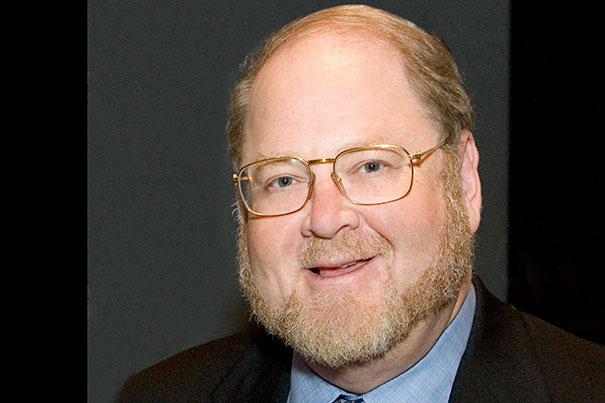
-
Six alums honored for service
Five alumni were recognized with Harvard Alumni Association Awards at a ceremony on Oct. 24.
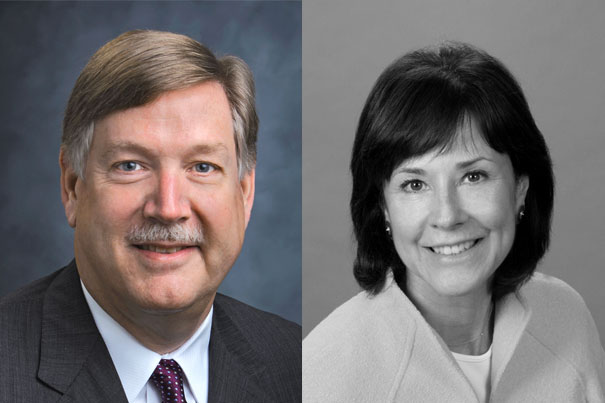
-
Two named Aloian Memorial Scholars
Kathryn Walsh ’14, of Adams House, and Roland Yang ’14, of Kirkland House, have been named this year’s David and Mimi Aloian Memorial Scholars.
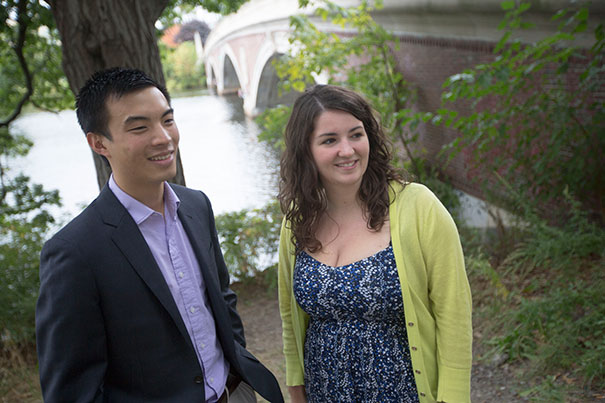
-
Alan Dershowitz: ‘Never boring’
In his final semester teaching, Professor Alan M. Dershowitz and his colleagues look back on his 50 years at Harvard Law School.
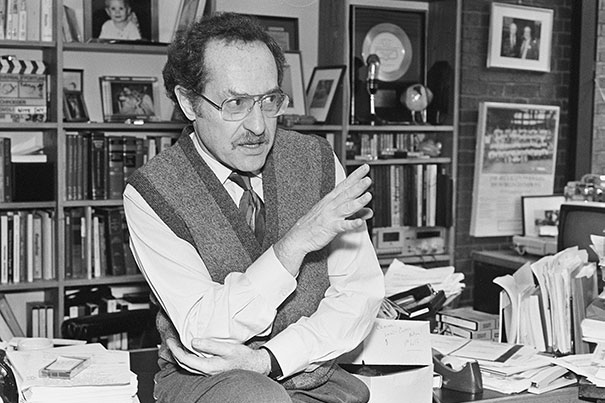
-
Faust sets out University position on divestment
After careful review and lengthy discussion on campus, Harvard President Drew Faust issued a statement making clear that she and the Harvard Corporation consider proposals to divest the University’s endowment of holdings related to fossil fuels to be “unwise and unwarranted.”
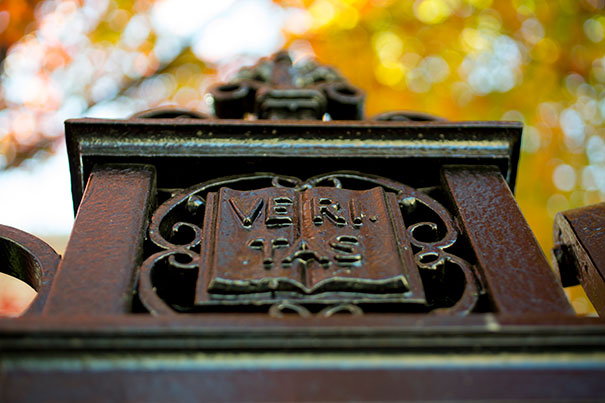
-
Dow Chemical-Nature Conservancy collaboration honored
The Harvard Kennedy School will present the 2013 Roy Family Award for Environmental Partnership on Oct. 7 to the Dow Chemical Co. and The Nature Conservancy (TNC) for their groundbreaking collaborative work to incorporate the value of natural resources into the business bottom line.
-
The future is now for FAS
Faculty of Arts and Sciences Dean Michael D. Smith recently spoke about the priorities for the coming campaign and his vision for the FAS.
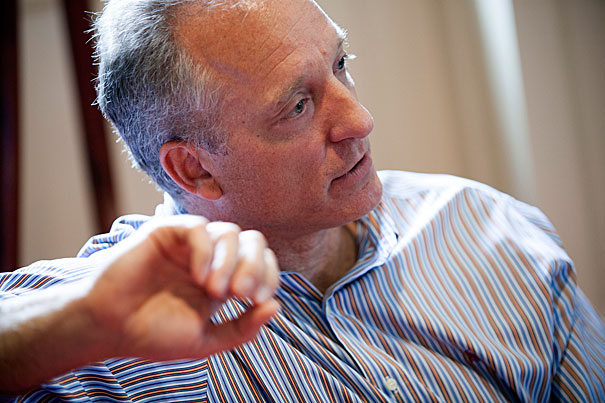
-
Biography of a bronze
September marked the 375th anniversary of benefactor John Harvard’s death, and the beginning of a course that uses his statue in Harvard Yard to instruct students about the realities of two vanished eras.
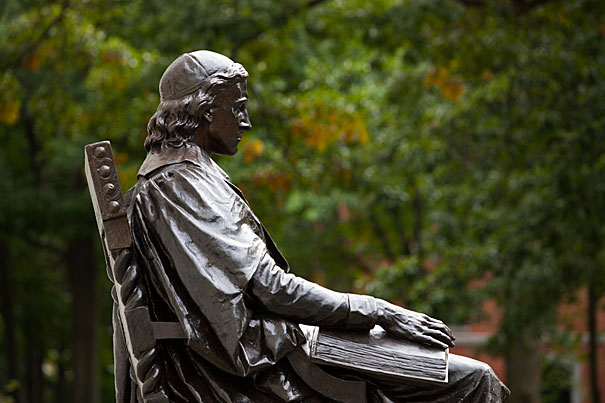
-
Harvard kicks off football season
“We are off to a solid start at 2-0, but we have a great deal of room for improvement …,” said a cautious head football coach Tim Murphy after the win over Brown University on Sept. 28. Harvard goes up against Holy Cross on Oct. 5. It won’t have another home game until Oct. 19.
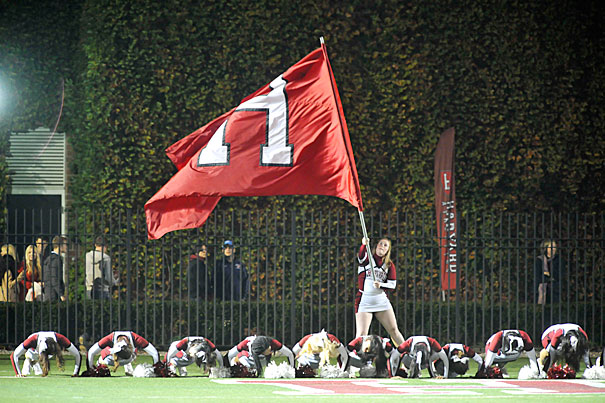
-
Collaboration in innovation
The thrill of discovery just isn’t the same when you’re alone. That’s one of the myriad reasons why collaboration is central to research at Harvard. Here, students, fellows, and researchers…

-
The beep ball player
Aqil Sajjad is blind, but he loves sports. So he’s playing on beep ball, a sport that features a chirping baseball that is delivered by a sighted pitcher to a blindfolded batter.
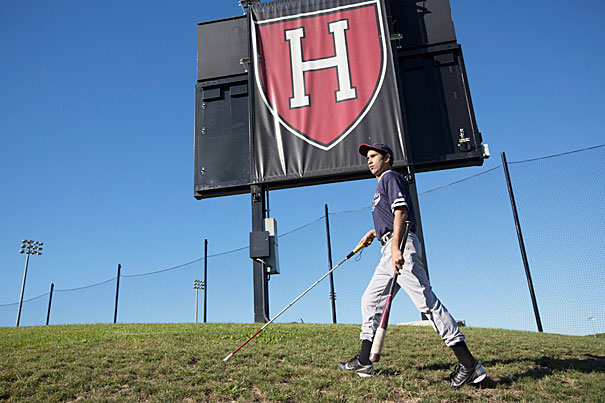
-
A strong, new voice
On Oct. 9, 2012, Taliban gunmen shot 15-year-old Malaa Yousafzai in the head as she rode home from school on a bus. She was simply trying education. On Sept. 27, Yousafzai was in Cambridge to receive the 2013 Peter J. Gomes Humanitarian of the Year Award.
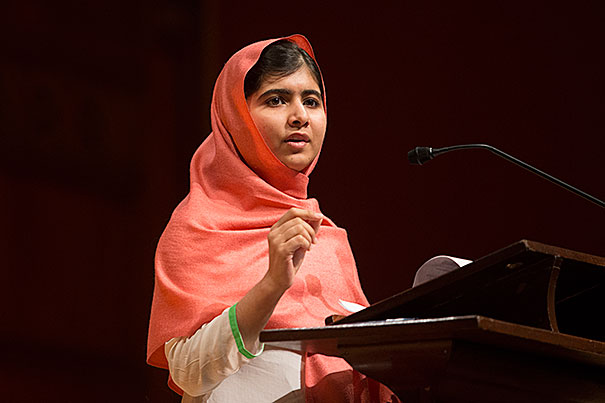
-
Nobel laureate Hubel dies at 87
Harvard Medical School Professor David H. Hubel, whose discoveries in visual processing and development ushered in the modern study of the cerebral cortex and changed the way childhood cataracts and strabismus (“cross-eye”) were treated, died on Sept. 22 of kidney failure in Lincoln, Mass. He was 87.
-
75 and getting younger
As the Nieman Foundation for Journalism at Harvard celebrates its 75th anniversary, the institution firmly embraces the changes and uncertainties of journalism’s future.
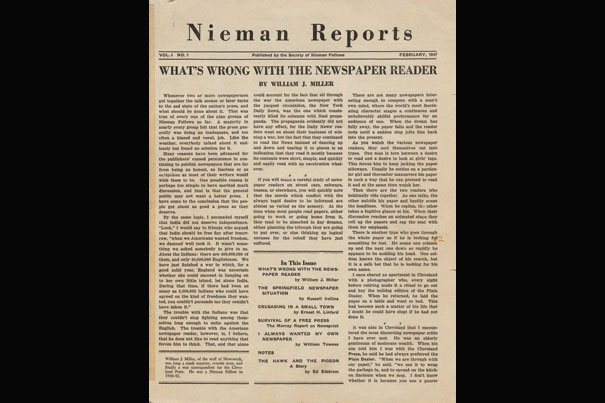
-
Faculty Council meeting held Sept. 25
On Sept. 25 the Faculty Council nominated a Parliamentarian for the 2013-14 academic year and heard a presentation on post-retirement health benefits and tax-deferred accounts. They also previewed the dean’s…
-
A professorship and a MacArthur
Jazz musician and composer Vijay Iyer, who won a MacArthur Foundation grant, in January will become the first Franklin D. and Florence Rosenblatt Professor of the Arts in Harvard’s Department of Music.
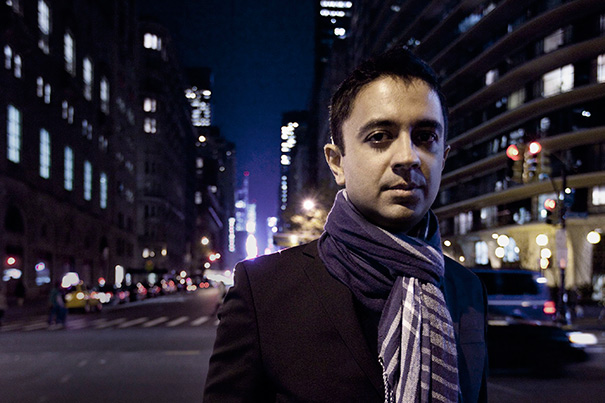
-
Libraries coming together
Sarah Thomas, the new vice president of the Harvard Library, will now also oversee the libraries of the Faculty of Arts and Sciences. The appointment signals a move toward a more unified and coordinated library system.
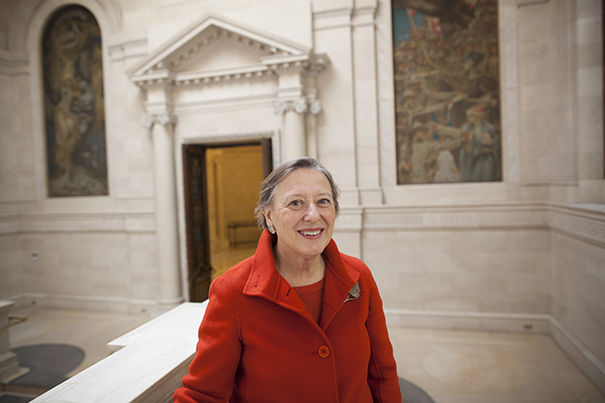
-
Seasoned with salsa
This month, the Harvard Allston Education Portal has been offering dance lessons from Marco Perez-Moreno, a Harvard alumnus and professional ballroom dancer.
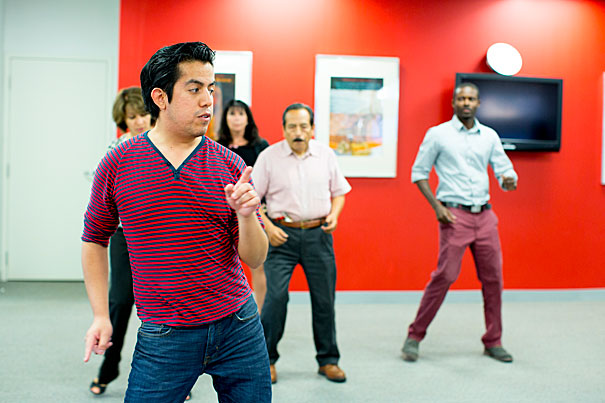
-
Harvard University endowment earns 11.3% return for fiscal year
Harvard University announced today that its endowment posted an 11.3 percent return and was valued at $32.7 billion for the fiscal year that ended June 30, 2013.
-
A 21st-century campus
Supporting the development of a robust campus, one that enhances Harvard’s mission of innovative teaching and learning, while simultaneously fostering connections across the University and the broader community will be an important goal of The Harvard Campaign.
